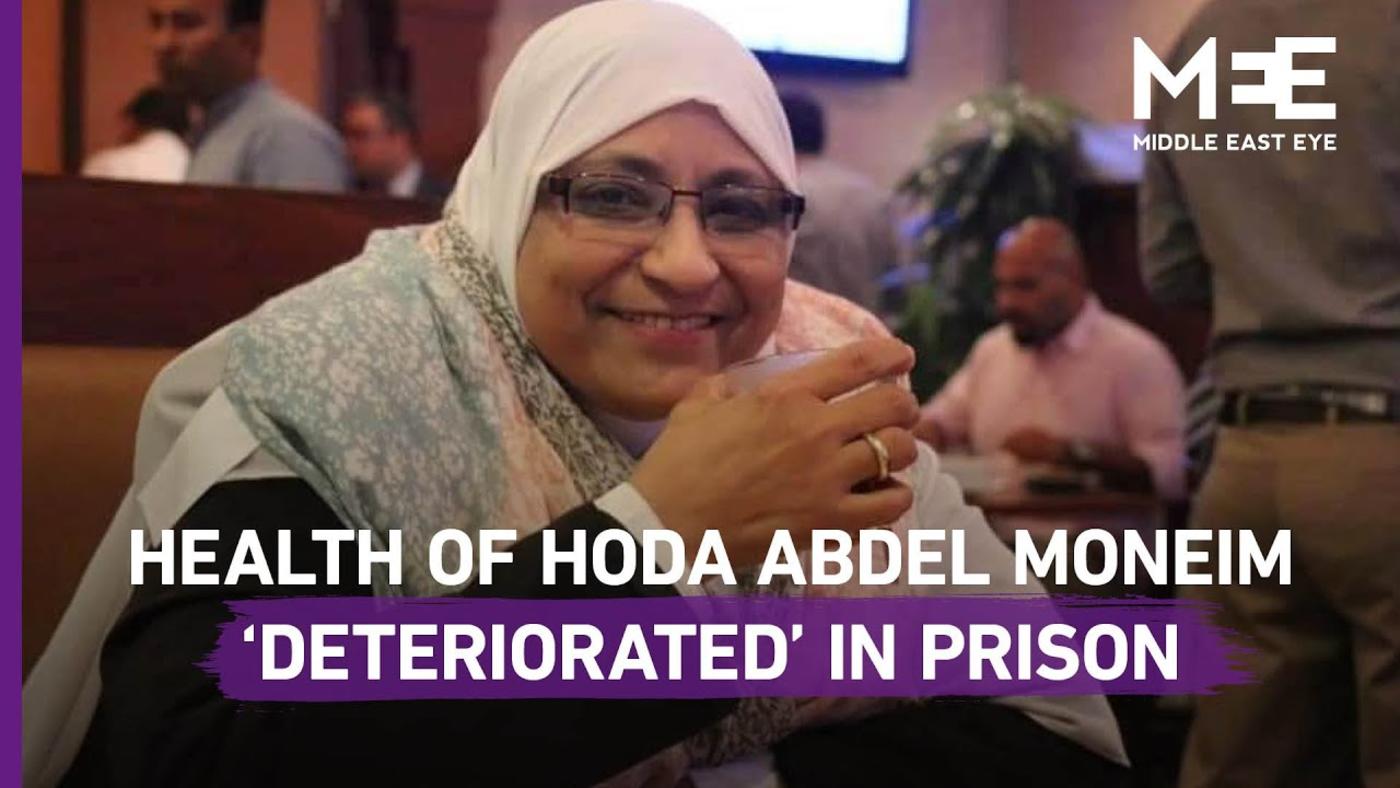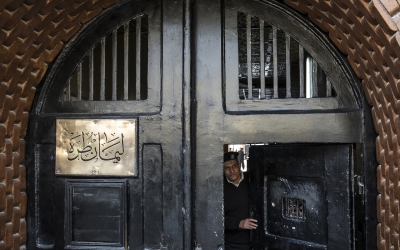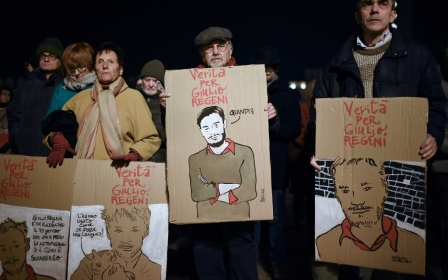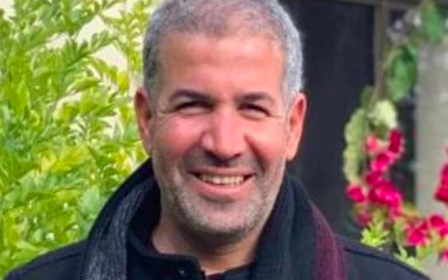Detained Egypt rights lawyer seriously ill and ‘at risk’ in detention, says family
The family of detained human rights lawyer Hoda Abdelmoneim have called on authorities to release her on medical grounds due to a reported deterioration in her health condition.
Abdelmoneim was arrested on 1 November 2018 and forcibly disappeared for 20 days until she appeared in a Cairo prosecution and was charged with “belonging to an organisation established contrary to the law” and “inciting to harm the national economy".
'She is a woman who dedicated her life to human rights law for more than 40 years. There is no justification for continuing to detain her or denying us a copy of her medical reports'
- Jihad Khaled, Abdelmoneim's daughter
Abdelmoneim has yet to stand trial for the charges. Her lawyers have not been able to contact her directly since her arrest, according to her daughter.
Abdelmoneim’s husband Khaled Badawy and her daughter Jihad Khaled have said that recent news leaked from prison showed that Abdelmoneim has recently been admitted to the hospital with a serious kidney condition.
“The last thing we heard from the family of one inmate last week was that she was diagnosed with kidney failure after being transferred to a hospital in Giza,” Abdelmoneim’s daughter Jihad Khaled told Middle East Eye on Tuesday.
New MEE newsletter: Jerusalem Dispatch
Sign up to get the latest insights and analysis on Israel-Palestine, alongside Turkey Unpacked and other MEE newsletters
“We have no confirmed reports however because she has not been allowed any visits since her detention in November 2018 and we are denied copies of her medical checkup reports,” she added.
Khaled said her mother has suffered strokes and high blood pressure before she was in prison, but so far her overall medical condition had been under control.
“What we heard about her health condition this week sounded shocking to us. She never had kidney problems before. She has clearly developed this condition in prison. It might be due to the lack of proper sanitary conditions there.”
Egypt’s prisons are notorious for their lack of hygiene, and hundreds of prisoners have died in custody in recent years due to the denial of proper medical care.
'No justification' for continued detention
Abdelmonem, 61, is a prominent human rights lawyer and activist who had a leading role in the 2011 revolution that ousted longtime autocrat Hosni Mubarak. She is a former member of the National Council on Human Rights.
Her arrest came as part of a wave of detentions that targeted dozens of other human rights workers in Cairo two years ago.
“She is a woman who dedicated her life to human rights law for more than 40 years,” her daughter said.
“There is no justification for continuing to detain her or denying us a copy of her medical reports.”
On 21 November, Abdelmoneim’s pretrial detention bypassed the legal limit set forth by article 143 of Egypt’s code of criminal procedures, and therefore her family believes she is legally entitled to be released.
Amnesty International has also called for her immediate release.
However, it is common for Egyptian authorities to continue to hold detainees even after the end of their pretrial detention period. Many had new cases brought against them with almost identical charges, in a practice referred to by rights lawyers as “recycling cases”.
Now, Abdelmoneim’s family is worried that her life is at risk, and continues to demand medical reports to seek independent medical advice.
“I call on authorities to release her so that I can provide her with the proper medical treatment and save her life,” her husband Khaled Badawy, who is also her lawyer, wrote on Facebook.
“She has served more than two years in pretrial detention, during which she suffered from multiple strokes and high blood pressure.”
Badawy launched an online campaign earlier this week, titled “Hoda Abdelmoneim is in danger”, calling for his wife’s release.
“Hopefully my father can speak to her in the next session, and hopefully she will be released in accordance with the law,” her daughter said, speaking to MEE from Brussels.
Khaled said that her mother is currently held at Qanater women’s prison in a separate ward with five other female political detainees.
“We have been able to deliver medicine to her, but not food or winter clothing.”
Interior ministry denies reports
In response to the campaign, Egypt’s Ministry of Interior released a statement on Tuesday saying that Abdelmoneim’s health is stable.
“She has been transferred to hospital as soon as she suffered some pain. After conducting a medical examination and the necessary analyses and x-rays, it was found that her health condition is good, her vital signs are normal, and her condition is stable ... She was returned to her prison,” the statement said.
Since coming to power in July 2013, following a military coup against the country's first democratically elected president Mohamed Morsi, Sisi has fiercely suppressed dissent.
Tens of thousands of people have been arrested, many of them critics, writers, journalists, human rights defenders and peaceful protesters. Thousands have been jailed without trial under Egypt's abusive pretrial detention system, and hundreds have died of medical negligence.
Those whose deaths were attributed to medical negligence in recent years include former President Mohamed Morsi, Egyptian-American prisoner Mustafa Kassem, film director Shadi Habash, and former Muslim Brotherhood MP Essam El-Erian.
Middle East Eye delivers independent and unrivalled coverage and analysis of the Middle East, North Africa and beyond. To learn more about republishing this content and the associated fees, please fill out this form. More about MEE can be found here.






